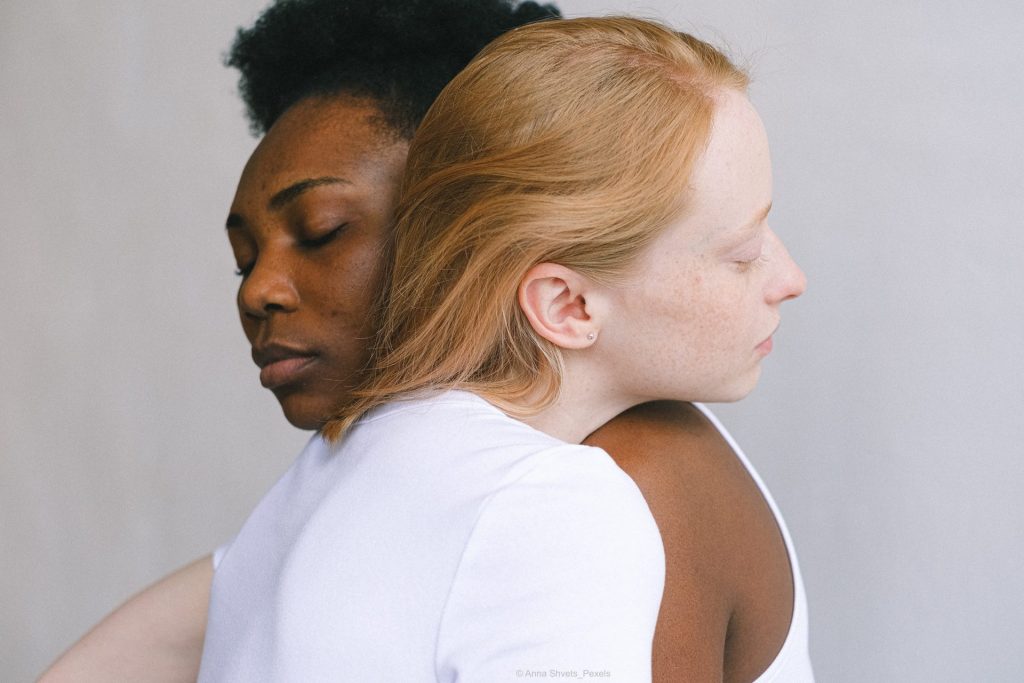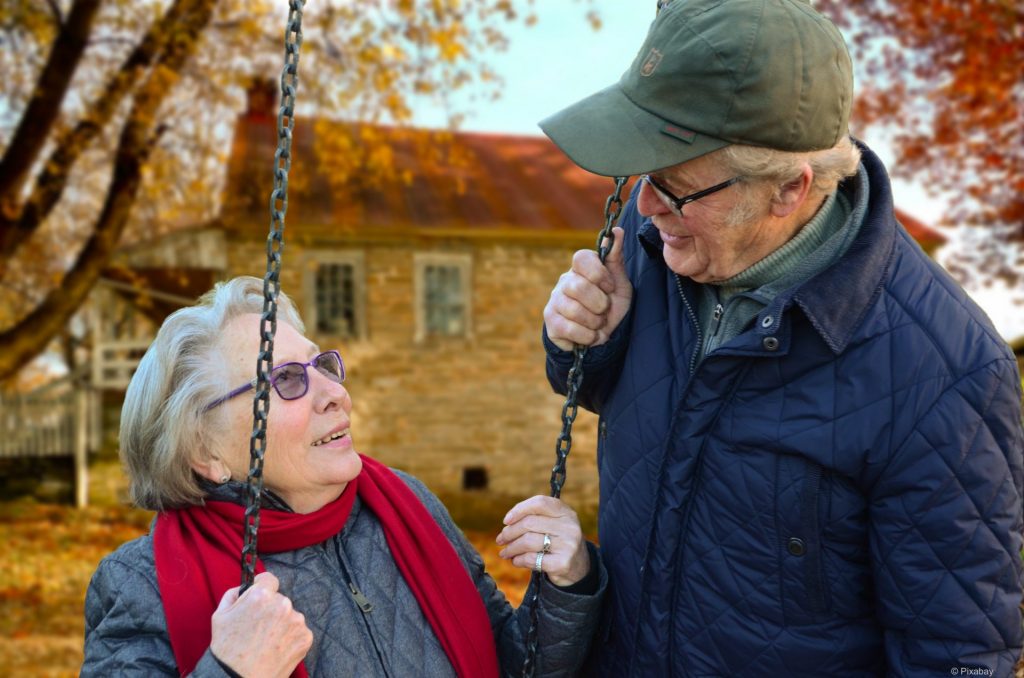by Petra Bartoli y Eckert
If you believe the stories in movies and books, it’s everywhere: happy love! But in everyday life, not everything is always rosy. How do couples keep love alive for the long term? There are constant stress tests in a love relationship. Whether in everyday life or due to social and global crises that don’t stop at our doorstep.
And then there’s Christmas, which is usually emotionally charged, just around the corner. How do couple relationships remain stable despite all this? We asked psychologist and couples therapist Bertram Wohlenberg from Berlin. He sees couples with different life plans and different cultural roots. Bertram Wohlenberg should know: How does it work with love?
How do you define love? And how can it succeed in lasting?
First of all, I have to say: the term love can be quite misleading. Because everyone has a different concept in their head. Some people understand it as a feeling they are experiencing at the moment. For others, it’s an expectation they have of a person. And still others summarize a series of certain needs under it. What is certain is that if love, or rather couple relationships, are to last, good social conditions are also needed. As a couples therapist, I try to help couples find a way to make their relationship work despite the often difficult conditions.
Which couples come to you? What problems can you help with as a couples therapist?
Love is independent of age, gender and origin
I do not have a limitation there. Neither thematically nor in the sense that I want to define what exactly a couple is. People come to me who not only have a typical heterosexual, monogamous relationship. Transgender people, couples with different cultural backgrounds, homosexual couples or even patchwork unions consisting of several different people also seek support in my practice. For me it does not depend on the concrete constellation, but on what who needs.
There are, of course, typical problems that I have to deal with again and again: A couple has had children and after a few years they realize that the relationship is very stressed and challenged. When the pressure becomes too great, the couple relationship is usually in danger. Or the children leave home, and the couple wonders what they still have in common at all. All this and a few other problems are often the subject of couples therapy.
How do the current uncertain times affect couple relationships?
Social crises always have an impact on couples. I have just noticed that many couples are under enormous economic pressure: Will we still be able to pay our rent? Can we cope with the rise in electricity prices? And can we still spend money on gifts at Christmas? For low-income couples, the pressure here is even greater – and it usually leads to more conflict. For some couples, concrete uncertainty is also a major burden. I’m thinking of people who have fled to Germany and don’t have a secure residence status.
At the same time, crises don’t necessarily have to drive a couple apart. Sometimes crises also have a bonding effect when people manage to stand up for something or tackle or solve a problem together.
Has it become more difficult today – compared to the past – to have a consistent couple relationship?
I notice that it is becoming increasingly difficult for couples to meet the multiple demands of society. The function that couples and families have in our economic system certainly plays a major role here. In the western capitalist system, consumption and self-optimization are obligatory – but they are not meant to be perceived as such, but as desires of one’s own. In addition, the patriarchal structures lead to the fact that women are still burdened several times. They take over the care work at home and in the job they are supposed to perform at their best. And then they are also supposed to be attractive to their partners and make sure that they conform to socially standardized ideals of beauty. The demands are increasing all the time.
But men also come under pressure when they leave the classic patriarchal role. When they get involved in child-rearing, household chores, relationship management and all that, and at the same time want or have to be available one hundred percent at work. In addition, our society is in a constant state of change. In the past, grandparents or extended family were often within reach to take over some of the tasks at hand, such as childcare. Today, couples often have to handle this on their own. It’s all a lot – sometimes too much. And when things get tight, the couple relationship is most likely to be sacrificed.
I think couples absolutely have to be relieved of more of the burden. Better sociopolitical conditions would help: for example, reduced working hours that give couples more freedom, or better childcare options.
Christmas is coming again. Many have a desire for harmony and for a perfect celebration. And then the nerves are already frayed and everyone is busy with themselves. How can couples succeed in taking some of the pressure off?
For me, the decisive factor here is exchange, talking to each other. The best thing to do is talk to each other early on! Couples should definitely make it a topic: What does Christmas mean to whom? And what needs does who have when he or she thinks about Christmas? Especially at Christmas, the issue is often a gender issue again. It is mainly the women who take care of food, presents, and the organization of the festivities. Then the pressure is mainly on one person.
That’s why I think it’s important to talk beforehand about who can and wants to do what. Of course, this raises the question: What expectations do we have ourselves and what expectations are placed on us? And which of these do we actually want to fulfill? Then suddenly there is room for maneuver, and a feasible path can be found for everyone. That can relieve a lot of pressure and create a bond.
When things go wrong – whether at Christmas or in everyday life: What can couples do to get closer again or to avoid drifting apart in the first place? And: Can couples practice „arguing properly“?
I always recommend that couples learn and practice a communication technique. A first aid course is often taken for granted. So why not also a course where couples learn how to communicate well with each other? Arguing properly and talking well to each other starts with formulating your needs in a way that doesn’t hurt the other person in the process. And finding ways to meet your own needs without putting the other person on the spot.
I think the so-called „non-violent communication“ is a very good approach here. This is a worldwide proven method by Marshall B. Rosenberg. By the way, if couples manage to communicate well with each other, this is also helpful beyond the couple relationship, for example in the relationship with children.
Is there anything you would like to pass on to couples? How can a relationship be kept alive, what strengthens couples?
Wonderful when love lasts long …
What does all couples good is to find a common direction. Is there a common third thing, such as a shared hobby? Or something the couple wants to commit to or care about together. And there needs to be that third thing, too, so that each and every one can get something from the outside. If the couple just keeps to themselves, it’s like an island state. Couples cannot fulfill all of each other’s needs!
Rituals, regular couple time, are also particularly bonding. Preferably during the day. Take time for each other one day a week or every two weeks. Turn off the doorbell. Put the cell phone away. Hire a babysitter. What should happen during this couple time is up to the couple. It can be cooking together, going for a walk, massage and sex time, or just sitting on the couch together, talking and drinking coffee. As a couples therapist, however, there are two rules I recommend here: Don’t talk about the children and don’t discuss anything organizational! Then you suddenly come back to topics you haven’t talked about in a long time – and create a new connection.
And if things don’t work out: get help! And this should not be a question of personal financial means. Counseling centers in all larger towns often offer free services for couples.
Fancy a heart video on the subject of couple relationships?!
Here comes another tip from Bertram: A short video clip that helps to open our images of love and couple relationships beyond clichés and discrimination: love has no lables!
https://www.youtube.com/watch?v=PnDgZuGIhHs
For further information Bertram Wohlenberg can be reached by email at b.wohlenberg@gmail.com
This article is protected by copyright.








Deine Daten werden verschlüsselt übertragen. Deine IP-Adresse wird nicht erhoben.
Infos zum Datenschutz